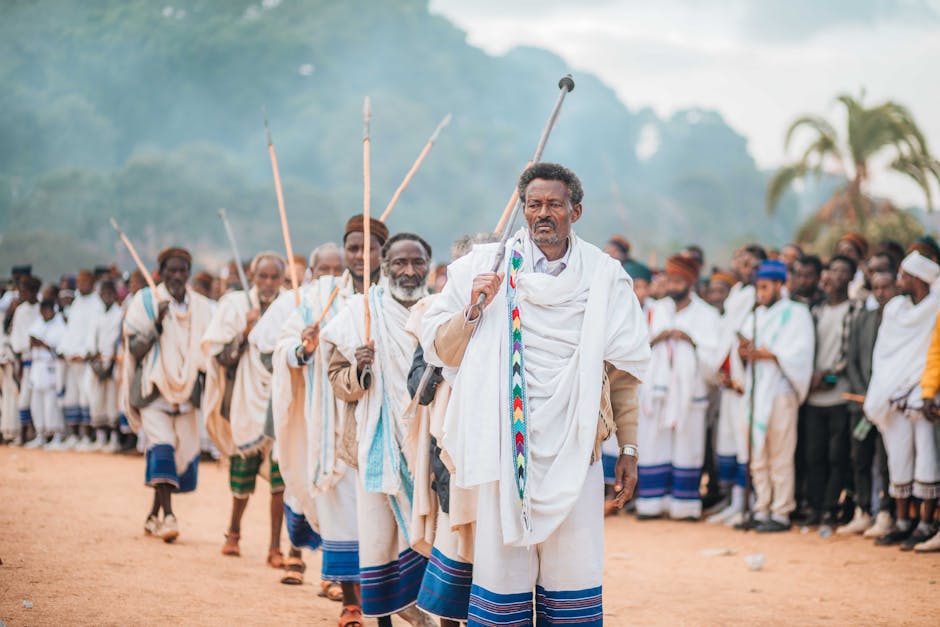Exploring Unique Cultures Through Documentary Films

Documentary films serve as a powerful medium for exploring and understanding unique cultures around the globe. These films provide an authentic glimpse into the lives, traditions, and histories of various communities, allowing viewers to experience cultures they might otherwise never encounter. By focusing on real people and real stories, documentaries can break down stereotypes and foster greater empathy and appreciation for diversity.
The Power of Documentary Films in Cultural Exploration
Documentary films have a unique ability to capture the essence of a culture in ways that other media often cannot. They offer a raw, unfiltered look at different ways of life, highlighting customs, rituals, and everyday experiences. For instance, films like "Samsara" (2011) take viewers on a visual journey across 25 countries, showcasing the interconnectedness of human life through stunning imagery and sound.
Another example is "Baraka" (1992), which explores themes of nature, humanity, and spirituality without any dialogue, relying solely on visual storytelling. Such films immerse audiences in the sights and sounds of diverse cultures, making them feel as if they are part of the experience.
Documentaries also serve as educational tools, often used in classrooms to teach students about different societies. They can inspire curiosity and a desire to learn more about the world beyond one's immediate surroundings.
Key Elements That Make Cultural Documentaries Effective
Several factors contribute to the effectiveness of cultural documentaries:
- Authenticity: Genuine representation of people and practices is crucial. Filmmakers often spend years building trust within communities to portray their stories accurately.
- Visual Storytelling: High-quality cinematography and compelling visuals draw viewers in and keep them engaged.
- Narrative Structure: A well-crafted narrative helps convey complex cultural nuances in an understandable way.
- Personal Stories: Focusing on individual experiences makes broader cultural themes more relatable and impactful.
Films like "He Named Me Malala" (2015), which tells the story of Nobel laureate Malala Yousafzai, exemplify these elements. The documentary combines personal interviews with real-life footage to create a powerful narrative that resonates with viewers worldwide.
The Role of Technology in Documentary Filmmaking
The advent of new technology has revolutionized documentary filmmaking. High-definition cameras, drones, and advanced editing software enable filmmakers to capture stunning visuals and tell more compelling stories. Technologies such as virtual reality (VR) are also being explored to create immersive cultural experiences.
For example, the VR documentary "Traveling While Black" (2019) allows viewers to experience the realities faced by African Americans traveling during segregation through an immersive VR environment. This technology not only enhances storytelling but also provides audiences with a deeper emotional connection to the subject matter.
Moreover, online streaming platforms like Netflix and Amazon Prime have made it easier for these films to reach a global audience. Films like "13th" (2016) by Ava DuVernay have sparked international conversations about race and justice, demonstrating the far-reaching impact of documentaries.
Challenges Faced by Cultural Documentaries
Despite their potential, cultural documentaries face several challenges:
- Funding: Producing high-quality documentaries requires significant financial resources. Securing funding can be difficult, especially for independent filmmakers.
- Access: Gaining access to certain communities or regions may be challenging due to political or social barriers.
- Cultural Sensitivity: Filmmakers must navigate cultural sensitivities carefully to avoid misrepresentation or exploitation.
These challenges necessitate a careful balance between artistic vision and ethical responsibility. Successful documentaries often involve extensive research and collaboration with cultural experts to ensure accuracy and respect for the subjects portrayed.
Impact on Viewers and Society
The impact of cultural documentaries extends beyond mere entertainment. They have the power to influence public opinion, shape cultural understanding, and even drive social change. By presenting real stories with emotional depth, these films can inspire empathy and action among viewers.
A notable example is "The Act of Killing" (2012), which confronts the perpetrators of the Indonesian mass killings of 1965-66. The film's shocking portrayal prompted international discussions about justice and reconciliation. Similarly, "Blackfish" (2013) led to widespread outrage over the treatment of captive orcas and spurred changes in marine park policies worldwide.
Cultural documentaries also contribute to preserving cultural heritage by documenting traditions that may be at risk of disappearing. These films serve as valuable records for future generations, ensuring that diverse cultural practices are remembered and celebrated.
| Film Title | Year | Focus |
|---|---|---|
| "Samsara" | 2011 | Diverse cultures worldwide |
| "Baraka" | 1992 | Themes of nature, humanity, spirituality |
| "He Named Me Malala" | 2015 | Nobel laureate Malala Yousafzai's story |
| "Traveling While Black" | 2019 | African American travel during segregation (VR) |
| "The Act of Killing" | 2012 | Indonesian mass killings (1965-66) |
The Future of Cultural Documentaries
The future looks promising for cultural documentaries as new technologies continue to emerge. Advances in VR, artificial intelligence (AI), and augmented reality (AR) offer exciting possibilities for more immersive storytelling. Filmmakers can create interactive experiences that allow viewers to explore different cultures in unprecedented ways. Streaming platforms will likely continue to play a vital role in distributing these films globally, making them accessible to wider audiences than ever before. However, it remains essential for filmmakers to prioritize ethical considerations in their work. Ensuring accurate representation while respecting cultural sensitivities will be crucial as they navigate this evolving landscape. Documentary films are invaluable tools for exploring unique cultures worldwide.
Sources: Netflix.com , Amazon.com , BBC.com , IMDB.com , TravelingWhileBlack.com .
